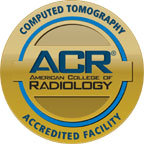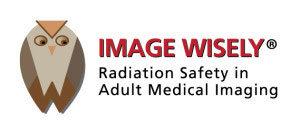A computerized coronary tomography (CT) calcium scan is a heart test that scans the presence and quantity of calcium deposits in the arteries. Calcium deposits build up in the arteries narrowing the blood vessels, which may cause a heart attack or other heart illnesses. The extent of calcium deposits is measured from 0 to 1000, and the risk factors increase with the score.
The coronary calcium scan, also known as a heart scan, uses x-ray imaging to scan the entire heart, including arteries. The doctor measures the extent of plaque buildup and makes informed decisions based on the findings. The test helps detect possible heart problems even before they take place.
Why is a Cardiac Calcium Score Important?
Usually, you may not even know the heart has any issues until you get a heart attack, which happens after many years of plaque buildup in the arteries. Through the test, you may detect any possible problems and take immediate action to avoid future heart problems. Why is this important? According
to the Center for Disease Control and Prevention, heart disease is the leading cause of death in adults living in the USA. Every 36 seconds, one person dies in the United States from heart-related problems. About 655000 Americans die every year from heart disease, approximately one person in every four deaths.
Heart disease prevention is a crucial concern all over the world. These statistics make it vital for you to know your heart’s condition and take the necessary measures to prevent possible heart problems such as a heart attack. Your doctor advises whether you need any medication, lifestyle changes, or your heart is okay from the results.
Who Can Benefit from the Scan?
Men over the age of 40 and women aged over 50 years should get the scan at least once in 10 years. Also, if you have a family history of heart disease, suffer from diabetes, high blood pressure, are overweight, smoke, and have high cholesterol levels, you may want to know your risk of developing heart diseases. In most cases, the scan is a wake-up call or a motivation to adopt a healthy lifestyle to keep the heart healthy and plaque-free.
How to Prepare for a Cardiac Calcium Score Test
When your doctor suggests you have a heart scan, ask any questions you may have, such as why he thinks you are at risk of heart disease. The more prepared and informed you are, the easier the testing. You will be asked not to take caffeine, smoke cigarettes or exercise for at least four hours before the test and wear two pieces of clothing if possible. You will have to remove your shirt or blouse and any jewelry during the scan and put on a gown. Also, avoid lotions on the chest area before the test. The scan is a painless procedure that takes about 15 minutes.
What Happens During the Scan?
On the appointed day, make sure to arrive on time to fill out the paperwork and get your doctor’s briefing. Before the procedure begins, a technician attaches electrodes to your chest, which connect to an electrocardiogram that records your heart’s activity. The preparation is carried out as you lie down on a table that slides into the scan machine, but your head is outside the scanner during the procedure. You may be given medication that slows down your heartbeat during the scan. If you are nervous or suffer from claustrophobia, the doctor may suggest a calming medication to help you relax for them to obtain the right images. Note that when you are not at ease, the heart rate accelerates, leading to non-conclusive scan results.
After the scan, you may go home and await the results. Your doctor will call you in a few days to let you know the score, what it means, and the course of action.
How to Read the Cardiac Calcium Score
The score is given a number called the Agatston score. If you have a zero score, it means that your arteries are clean from any plaque buildup, and you are currently safe from any future heart illnesses. A score between 100 and 300 shows plaque deposits were detected. This puts you at a high risk of developing heart problems in the future, 3 to 5 years from the test time. An Agatston score higher than 300 puts you at a very high risk of a heart attack and severe heart illnesses. Your doctor may advise immediate action, including medications to stop or lower the risk.
Your doctor may also carry out a percentile score, which measures the amount of calcium in your heart compared to people in your age group and gender.
What to Do After the Results
As mentioned earlier, the test is a wake-up call to take better care of your heart. If your score was zero, keep working hard to maintain it that way. When it is between 100 and 300, immediate action is necessary, which mostly involves lifestyle changes. Those at a very high risk of getting heart problems may get prescriptions that help lower the risks. The drugs help unclog the arteries, reduce cholesterol levels, and strengthen the heart muscles.
What Should I Do if My Cardiac Calcium Score is High?
Apart from the recommended prescriptions, a change in your lifestyle is necessary. Start an exercise regime and eat healthy foods. Even when you are at high risk of a heart attack, you should often exercise even up to one hour every day without worrying about overworking the heart. The more you exercise, the stronger your heart gets, which lowers the heart attack risks.
Eat more whole grains, reduce refined foods and sugars. Smoking and excess consumption of alcohol increase your risk of heart problems. Also, stop or limit your dairy products intake, including milk, cottage cheese, yogurt, and ice cream. Aim at reducing your calcium intake. Read the labels when buying foodstuffs and avoid calcium-fortified beverages or foods.
What can Dissolve the Calcium Deposits
There are several outlooks the doctor can look into if your Agatston score is very high. The priority is to lower plaque buildup in the heart by using cholesterol-lowering techniques, and clot prevention and dissolving medications such as aspirin. The doctor may either prescribe harmful cholesterol-reducing drugs or good cholesterol increasing drugs. When blocked arteries are detected, the doctor makes emergency, immediate intervention measures, including surgery. He may opt for
- Coronary stenting, where a small tube or catheter, is inserted into the body and directed to the blocked artery to remove plaque from the walls and restore the blood flow.
- Bypass surgery where new blood routes are created using healthy veins from other parts of the body such as the arms, chest, or legs. The blood bypasses the blocked or narrowed arteries and uses the new route to flow to and from the heart.
Can You Lower Your Calcium Score?
Some techniques can be used to remove or slow down plaque formation in the arteries, as mentioned earlier. If your calcium score is high, medication and procedures that remove plaque from the heart can lower the score. After successfully reducing the Agatston score, look into the problems that had raised it. These may include lifestyle choices, certain medications, infections, calcium metabolism disorders, inflammation, and autoimmune or genetic disorders. Other times, cancer may cause calcification. The doctor may have to carry out a biopsy to determine if there are cancer cells in the region. Your doctor will have to carry out further tests to understand the cause of calcium build up in your heart and look into ways to stop or slow it.
A calcium score is vital for people who want to keep heart diseases away. However, only have it when recommended by your doctor. It should be carried out only when it is necessary to minimize radiation exposure.
Screening Locations
This exam is available at the following locations:
Screenings Offered
Overview
Brochures





